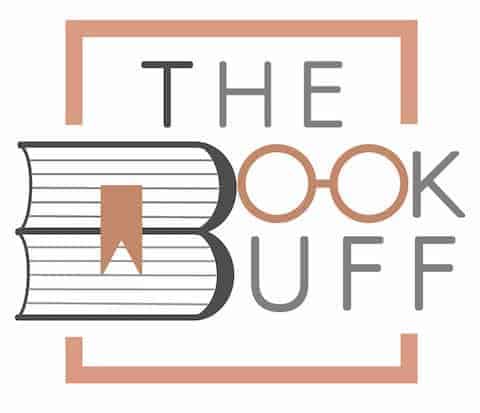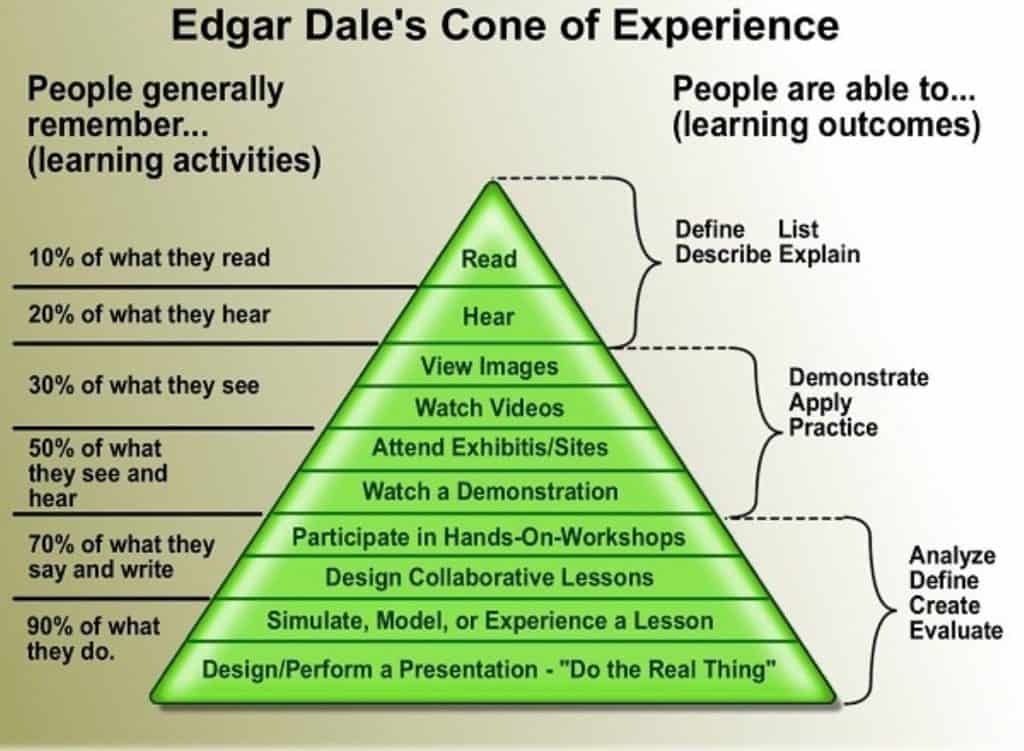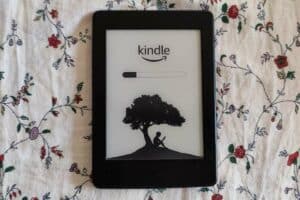Reading vs Watching: Which is Better Scientifically?
Disclosure: This post may contain affiliate links. – meaning I may get a commission if you decide to purchase through my links, at no additional cost to you.
Some people prefer to learn and increase their knowledge while reading, while others learn faster with visuals such as images and videos! As reading and watching are two different ways of receiving information, the question arises what are the differences between them and which is better for learning – reading or watching?
For most students reading is better than watching when you have to remember many facts and small detail. You are more focused on what you are reading than on what you are watching but If you start with a new subject or topic it can be effective to first watch a relevant video.
For ages books were, apart from vocal traditions, the only medium where you could capture and/or find information and literature. Nowadays, TV and videos are in principle providing the same.
But despite differences between reading and watching may not necessarily be better than the other. It is a matter of which is best in a specific situation.
In this article, we’ll look at some of the aspects that both reading and watching-enthusiasts often use to “proof” that one medium is better than the other. We’ll look at whether there are differences and if so, what are their influence on each of the two mediums.
Key Differences Between Reading and Watching
Let’s look at some aspects where there are key differences between reading and watching and find out whether there is an answer to the question of which is better – reading or watching?
1. Brain Activity
It is a known fact that reading impacts your brain. In fact, both reading and watching cause brain activity. The difference is that reading stimulates other areas of the brain than watching.
This was discovered by researchers using Functional Magnetic Resonance Imaging (fMRI) scans.

Impact of Reading on the Brain Activity
Researchers at Emory University used fMRI scans and conducted important studies on how the brain reacts when one reads a book.
The studies detected heightened connectivity in the left temporal cortex and the central sulcus of the brain. These areas are associated with language receptivity, sensation and movement, symbol recognition, sounds, and spoken language.
In short, a large part of your brain stays active when reading, and the brain receives a “workout” every time you read a book.
A study conducted by the American Academy of Neurology has indicated that frequent reading has a long-term effect and can lower mental decline by 32 percent.
Impact of Learning Through Video on the Brain Activity
Many people think that, unlike reading, watching a video doesn’t cause a lot of brain activity. They consider it a relaxing activity and assume that the brain “switches off” when one watches a video.
This is not true. In an interview, Joy Hirsch, the Director of fMRI Research at Columbia University Medical Center, indicated that the human brain is also very active when one is watching television or a video.
She has used fMRI scans and has found that, just as with reading, the brain uses complex and coordinated activities to follow the storyline of a video.
The brain activity in the right hemisphere is enhanced when watching videos. This is the area involved with emotional responses and might explain why we become so emotionally invested in the fictional life of video characters.
The short-term memory areas are also activated because you have to remember what had just happened in the video sequence and connect it with what is currently happening.
Thus, although reading and watching use and activate different parts of the brain they both give your brain “workouts.”
Many researchers are of the opinion that the brain’s activity differences don’t make either reading or watching necessarily the better.
It depends on what input you need from your book or video. In many instances, reading and watching are complementing each other. The ideal would be that one reads and watches to get a balanced stimulation and enhancement of the brain.
2. Imagination
Reading stories in books and watching stories on video both enhance your brain’s imagination capacity. But independent researchers have concluded that reading is contributing much more than watching videos.
I have previously written a detailed article on how reading affects your imagination!
When you are reading fiction you are continuously imagining how the plot is developing and what the imaginary world and circumstances created in the story look like. This “exercise” teaches your mind to imagine things in real life as well and makes you creative.
When you watch a story on video or TV there is a lesser need to imagine the scenarios. They are visually provided for you. As you don’t have to create pictures in your mind your brain doesn’t get the same “training” as with reading.
3. Knowledge Gained
Both reading and watching videos can help increase your knowledge. In fact, reading regularly is known to make you a smarter person!
An interesting study by a professor of linguistics regarding the role of videos in learning was reported in an article in “Brittanica.com.” According to this article, students prefer to read their study material in books rather than watching it on video.
One of the main reasons, according to researchers, is the ideas people have about books and videos.
Books are still considered more accurate and objective than videos, and many people approach videos with an entertainment mindset. People also tend to multitask while watching video content and could miss important bits of information.
The research results showed that students who had studied from printed books were more knowledgeable about the topic than those who only watched videos on the subject.
But on the other hand, videos are time efficient and a very convenient option. For students who are struggling with reading, watching videos related to the study topic is a good alternative.
It is better to get your general knowledge and study information from printed books, but for people who don’t like reading, watching videos offers a good alternative. Some students use both mediums and first look at videos to get an overview of the topic, and then study in detail from printed material.
4. Memory Retention
Studies regarding the percentage of information we retain are given below:
When you only read the material silently, you will according to these studies, have a 10% retention. If you read aloud, in other words, you see and hear, the retention can be up to 50%.
And if you add the habit of writing notes when you read aloud, the retention percentage can be as high as 70% because you’ve read, heard, and written the material.
But studies showed that few people, including students, do more than only just read books. Therefore the retention from reading is generally accepted to be between 10% and 50%.
To watch a video the “see and hear” activities are combined. Therefore you will also have a percentage rate of up to 50% when watching a video.
5. Return on Investment of Time
With storybooks, it always takes longer to read the book than to watch the story on video. The reason is obvious. The story on the video doesn’t have all the detail and nuances as the original book. So when you have limited time to get the basic story, watching the video might be the solution.
Although it takes longer to read a book, the enjoyment of reading a good novel cannot be equaled by a video. If time is not a factor the longer time needed to read a book is worthwhile.
6. Calories Burned
You may be surprised to know that reading burns calories as does watching videos! That is a fact because every activity you engage in burns calories. It doesn’t matter whether it is a physical or mental activity.
Unfortunately, according to Marcus Raichle, neurologist, and professor of neurobiology at Washington University in St Louis the calories burnt by reading or watching videos are not enough to cause any weight loss.
Although there is a difference in the number of calories burnt when you are reading or watching, the difference is actually insignificantly small and does not influence weight loss.
You burn more calories when you are reading a book than when you are watching videos or TV. On average you’ll burn 150 calories when you read for 1 hour and 45 minutes. To burn the same amount of calories only by watching TV or videos, you’ll have to watch for about 2 hours and 30 minutes.
When you watch scary movies you burn more calories than when you watch comedies or novels. By watching a scary movie you burn the calorific equivalent of a small chocolate bar, according to a study by researchers at the University of Westminster.
If you watch a 90-minute horror film you can burn up to 113 calories.
According to an article in “The Guardian,” some movies are more effective than others. A study showed that the calories burnt by viewers of the Stanley Kubrick chiller “The Shining” lost on average 184 calories. The viewers of “Jaws” lost 161 calories and viewers of “The Exorcist” 158.
Interesting, you will burn 150 calories if you sleep for 2 hours 30 minutes.
7. Stress Released
According to an article in “Time.com“, some research has shown that watching TV or videos can let you relax, as it provides a momentary escape from whatever stresses you have.
In the right circumstances, television can also help to recharge your brain and cause stress-release. Studies reported in the journal “Social Psychology and Personality Science,” have found that re-watching old favorites can give people a mental boost.
When you re-watch an old favorite you’re among familiar, characters and know what’s going to happen. You feel “safe” and you can relax while watching the video.
However, other researchers have found that very busy people feel guilty about spending time in front of the TV. For them, it is stressful to watch TV or videos.
Reading is a very good stress releaser. When you read your book you are “transferred” to another world and all your real-life stress is forgotten.
It is also easier to find a reading place that contributes to a relaxed environment, than a watching place. You can relax with a book on the beach, in a park or in a beautiful corner of your garden.
8. Impact on Focus
Researchers and psychologists have proved that reading enhances your focus abilities, attention span, concentration, and memory.
When you read, you focus on the words on the page and you learn to block out all interferences. You are busy with only one activity – reading. Your reading skill also trains your brain to focus on one thing alone in real life as well.
Studies have shown that many people find it difficult to focus on a TV program or video they are watching. This is because you are actively trying to do one thing but your mind is subconsciously “at work” on something else.
It is easier for your mind to get involved with other things when watching videos as the video keeps on playing. When you read you are so focused that your mind can’t “wander off.”
9. Eyesight Damage Whilst Reading v. Watching
Reading rarely leads to permanent eye damage. It is, however, accepted by ophthalmologists that reading can put a strain on the eyes and this can cause symptoms like dry eyes. Reading can also cause headaches!
I have previously written a detailed article on how reading affects your eyes where I provide tips on how to identify the negative impact of reading on your eyes. Plus, I have also provided relevant solutions to fix this issue. Make sure you check it out!
Fortunately, these symptoms are mostly only temporary. However, things like reading in direct sunlight and HEV light from some digital devices can cause more permanent damage. Reading in dim light can cause eye strain but studies have confirmed that this will not permanently affect your eyesight.
When watching TV or videos you can get digital eye strain, also known as Computer Vision Syndrome, but fortunately, it is also not permanent damage. In a 2010 issue of “Scientific American,” a group of ophthalmologists stated television “won’t cause any physical damage to your eyes.”
Studies have shown that eye strain develops quicker when watching TV or videos than when reading a book.

So, Which is Better: Reading or Watching?
To a great extent, your personal preference will determine whether you do more watching than reading or vice versa. From what we’ve discussed above it is clear that although there are differences between reading and watching, both activities can be good for a person.
Reading enhances certain brain activities, while watching is stimulating other regions of the brain. Sometimes you only have time to watch a story on video, and other times you enjoy reading the original book and getting involved in all the nuances and intrigues of the characters and plot.
Many researchers are of the opinion that both reading and watching should be done in a balanced way by everyone. There are, however, aspects concerning studying where it is better to read, but also aspects where it is better to watch a video.
For most students reading is better than watching when you have to remember many facts and small detail. You are more focused on what you are reading than on what you are watching and thus you have good content retention over a longer period if you’ve read the material.
If you start with a new subject or topic it can be effective to first watch a relevant video. When you have to study a novel, for instance, it can be a good idea to first watch the story in its video version to get an overview of the story and characters. It is then easier to follow the story when you read the book.
A video is also useful when you revise work or a book that you’ve already read. The video normally emphasizes the main points.

About the Author
Akansha is a former business journalist and a seasoned communications professional. She is the founder of TheBookBuff, an avid storyteller, and a lifelong biblophile! Check out her profile page to know more about Akansha.


![Kindle Battery Exclamation Mark! [Meaning & How to Fix!]](https://thebookbuff.com/wp-content/uploads/2022/05/Screenshot-2022-05-13-at-5.42.00-PM-300x200.jpg)
![Is The Basic Kindle Good Enough? [All New Kindle Review!]](https://thebookbuff.com/wp-content/uploads/2022/09/Kindle-kept-on-a-table-300x200.webp)
![Kindle Battery Draining Fast? [9 Reasons & How to Fix!]](https://thebookbuff.com/wp-content/uploads/2021/11/young-man-reading-ebook-with-ereader-on-couch-2021-08-29-04-05-36-utc-optimized-300x203.webp)
![How to Download Kindle Books to Computer? [EASY Guide!]](https://thebookbuff.com/wp-content/uploads/2021/11/pexels-alexandru-molnar-7597369-300x199.webp)
